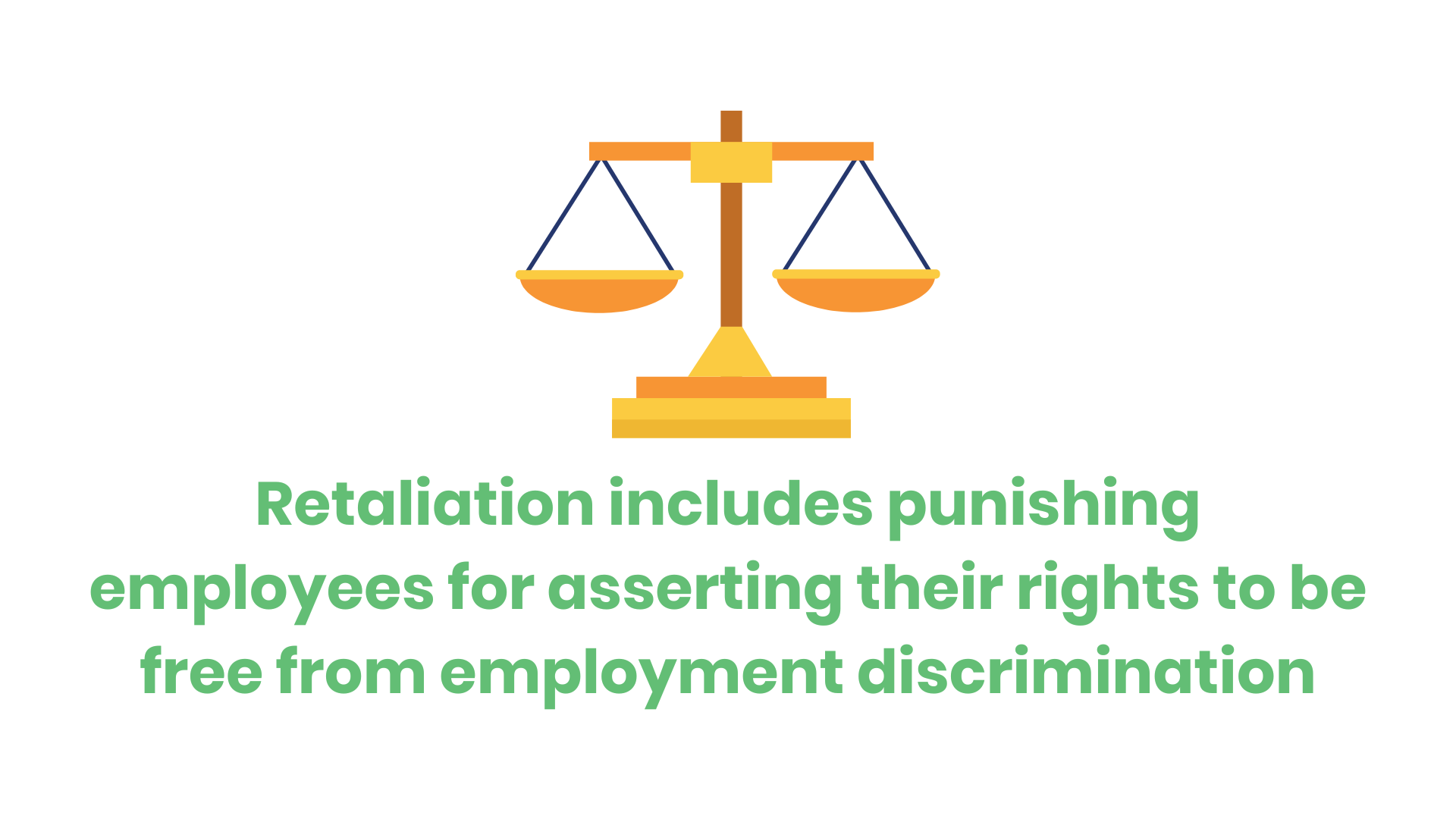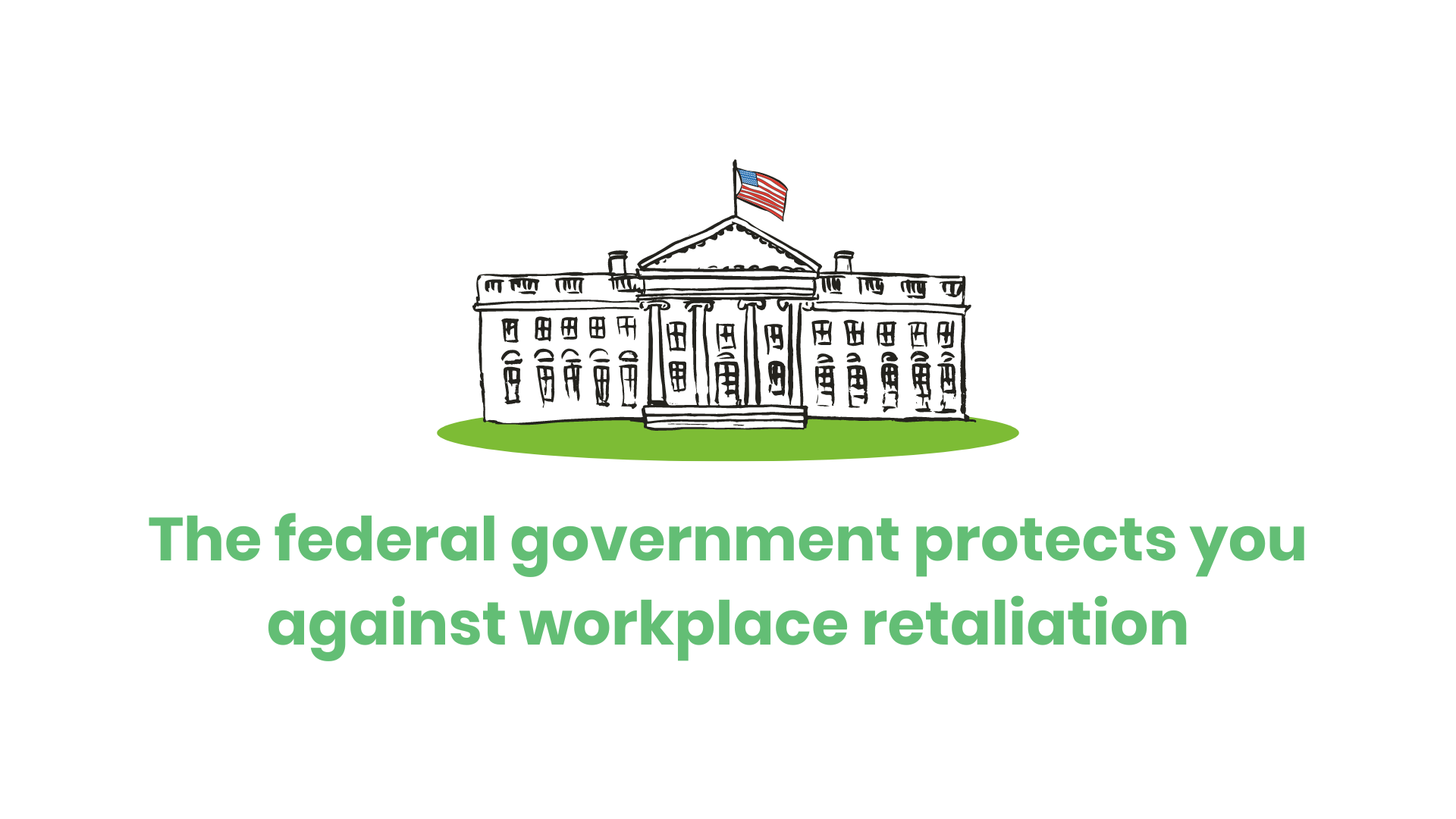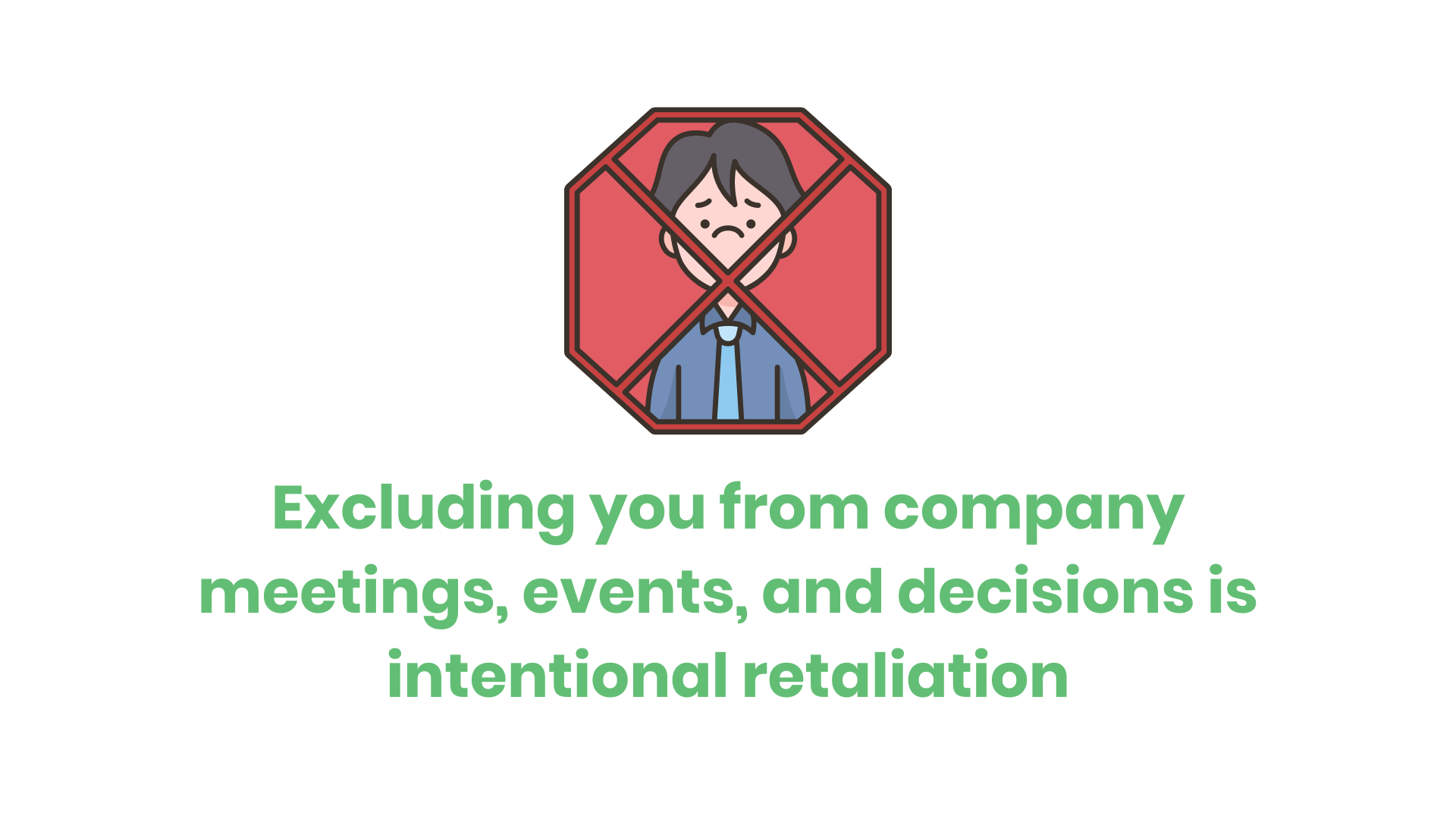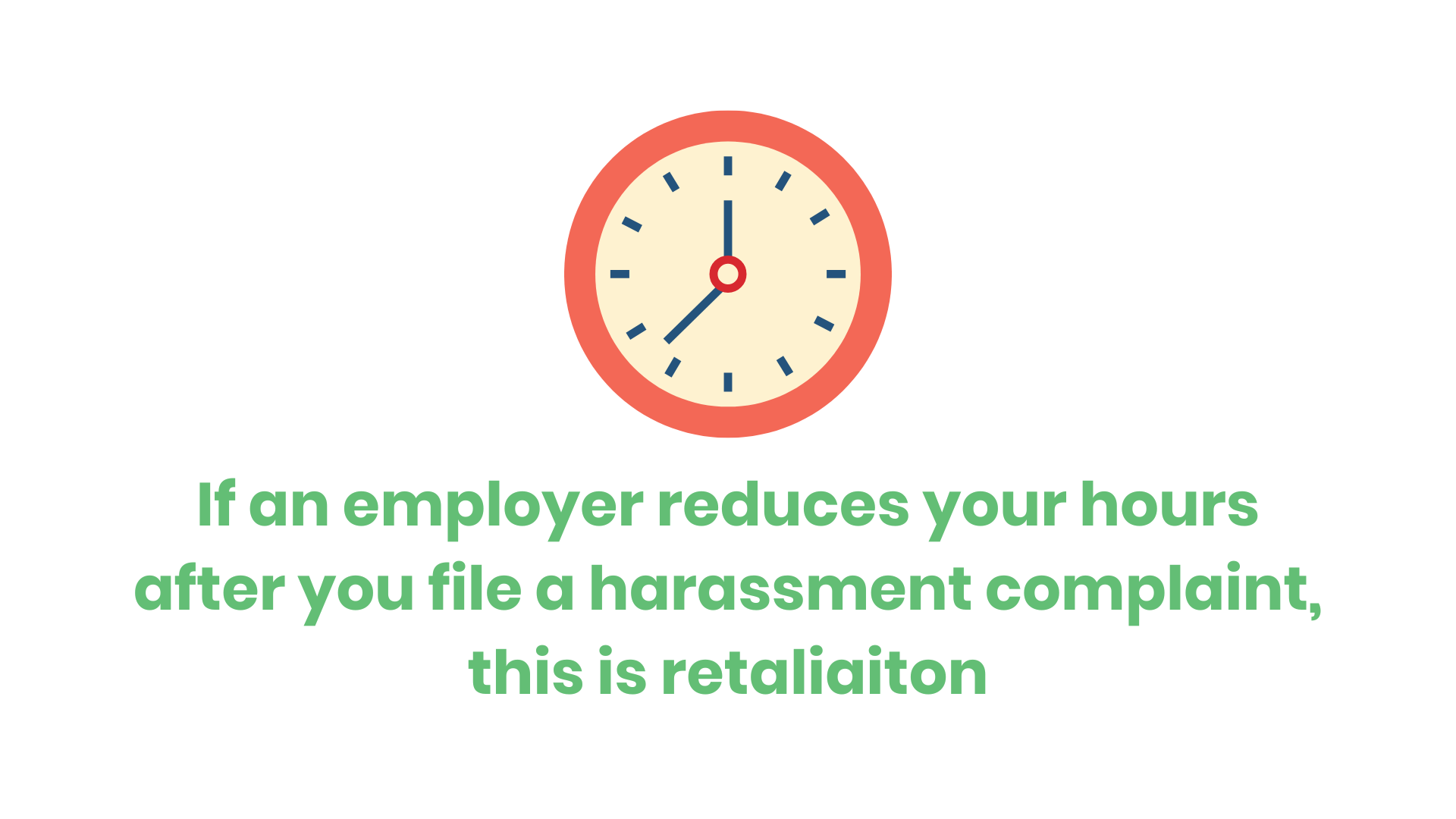What is workplace retaliation? What does it look like? How does it present itself in a workplace environment?
If you’re asking yourself any of these questions, you came to the right place.
Retaliation occurs when an employer fires an employee or takes any other type of adverse action against an employee for engaging in protected activities.
In this definition, an “employer” could refer to a manager, supervisor, or administrator. It’s anyone of authority over your role in the organization you work for.
In other words, according to the Equal Employment Opportunity Commission (EEOC), retaliation includes punishing employees for asserting their rights to be free from employment discrimination.
The laws in the United States prohibit punishing job applicants or employees for asserting their rights to be free from employment discrimination.
Table of Contents
What is workplace retaliation?
The law protects employees when taking actions such as…
Filing or being a witness in an EEOC charge, complaint, investigation, or lawsuit
Communicating with a supervisor or manager about employment discrimination
Answering questions during an employer investigation of alleged harassment
Refusing to follow orders that would result in discrimination
Resisting sexual advances
This also includes intervening to protect others from sexual advances
Requesting accommodation for a disability
Requesting accommodation for a religious practice
Asking managers or co-workers about salary information to uncover potentially discriminatory wages
Now that you know the federal government protects you against workplace retaliation, you might be wondering what it looks like in real life.
The EEOC gives some examples of workplace retaliation that are on the more obvious side of things.
The examples they give include…
Reprimand the employee
Give a performance evaluation that is lower than it should be
Transfer the employee to a less desirable position
Engage in verbal or physical abuse
Threaten to make, or make reports to authorities
This includes reporting immigration status or contacting the police
Increase scrutiny
Spread false rumors
Treat a family member negatively
For example, cancel a contract with the person's spouse
Make the person's work more difficult
For example, punishing an employee by purposefully changing their work schedule to conflict with family responsibilities
Although these are legitimate examples of workplace retaliation, you might be experiencing more subtle retaliation.
But, what are more specific types of workplace retaliation? Let’s take a look at what it looks like.
The Silent Treatment
Silence should raise suspicion because it is a form of workplace retaliation. If your employer, supervisors, or colleagues suddenly ignore you after submitting a complaint, this should raise a red flag.
Isolation or silent treatment is often a subtle sign of retaliation. Maybe management badmouthed you to your colleagues. Maybe your supervisor decided to force you to leave the company through isolation.
The silent treatment can take many forms.
For example, you could be in a situation where you made a sexual harassment claim against your employer.
Soon after, signs of the silent treatment could mean…
Management leaves you out of meetings that you used to attend
Colleges go out to lunch and don’t invite you along
You only hear about networking events after they happen
If these examples sound familiar to your situation, you may be experiencing retaliation.
Being Excluded
Although exclusion is technically part of the silent treatment, it deserves a category all of its own. Excluding you from company meetings, events, and decisions is intentional retaliation.
Many employers regularly hold team or company meetings. These are often to strategize about company decisions and keep the teams updated on company activities. Employers may attempt to exclude you from such meetings as a form of retaliation.
Some employers might go so far as to sabotage your work by purposefully excluding you from important meetings.
For example, let’s say your boss suddenly told you that you don’t need to attend the weekly strategy meeting anymore. However, this news comes shortly after you filed a complaint about harassment. If the timing of the exclusion is suspicious, you might be a victim of retaliation.
If your co-workers or employees of similar positions are still invited to these meetings, this should signal that your employer’s actions are retaliation.
Reduced Working Hours
A more common form of retaliation occurs when an employer reduces your hours after filing a harassment complaint.
Reduced hours mean reduced pay for those who receive hourly pay. Maybe you are a part-time employee and your job doesn’t specify that you need to work a minimum number of hours. On the other hand, maybe you have a fixed number of hours plus regular overtime.
For example, pretend you work in a restaurant 35 hours per week plus regular overtime on weekends. You made a workers' compensation claim two weeks ago. Now, your employer doesn’t schedule you for any more overtime hours. In the meantime, your employer schedules all the other restaurant workers who work in the same position as you for an unusual amount of overtime.
If this example sounds like your situation, you might be facing workplace retaliation. Especially if the reduction in hours happened soon after a protected activity as we discussed in the introduction of this blog.
Excessive Micromanagement
If you have worked more than one job, you have likely had more than one manager. You probably prefer one of your experiences over another.
Managers have different styles of leadership and some are better than others. Some managers have a hands-off approach while others prefer to micromanage. They want to look at every situation as closely as possible.
Micromanagement itself is not retaliation.
It can become retaliation if the timing is suspicious. Retaliation comes into play if the micromanagement becomes excessive after you partake in a “protected activity”, as outlined by the EEOC. You should raise a red flag when you are the only one receiving the change in treatment.
Physical or Verbal Harassment
Harassment and abuse in any form are clear signs of retaliation. This is especially true if it happens after you participate in a “protected activity” as defined by the EEOC.
This type of harassment and abuse can include…
A punch or slap
Snide remarks
Gossip
Tripping or shoving
Assault with a weapon
Racial slurs
Workplace harassment in any form, whether verbal or physical, qualifies as an unlawful and criminal act. It needs immediate addressing.
You need to make a mental note that not all abuse is retaliation. It may qualify as sexual harassment, which is still illegal.
Excessively Negative Performance Reviews
Performance reviews are important. They shape the professional life of an employee since they affect promotions, raises, and terminations. Unfortunately, your employer can sue the negative feedback against you to take further action against you.
A negative performance review by itself is not retaliation when the employer can rationalize their assessment.
However, if you become a “whistleblower” in a case and you suddenly start getting negative feedback, it could be indicative of retaliation. The same is true if your performance evaluation tanks soon after you enquire about compensation benefits.
For employers who use performance reviews, an excessively negative review should raise a red flag. Of course, you need to consider the circumstances.
Consider an employee who…
Has always had fantastic reviews in the past
Hasn't’ changed their work routine or productivity
Has never experienced any disciplinary action or warnings
In other words, if the negative review seems to have come out of the blue, it could be retaliation.
When is Retaliation Prohibited?
Retaliation is never tolerated. All forms of retaliation are illegal and prohibited.
Federal law protects employees from retaliation when they complain about workplace conduct. If an employee files a complaint internally or externally with an outside body like the EEOC about workplace discrimination or harassment, the law protects them from retaliation.
The law also protects employees who cooperate with EEOC investigations. If you serve as a witness in litigation, the government is protecting your rights too.
Various federal laws protect other types of activities, such as “whistleblowers” who complain about unsafe working conditions. There are also laws to protect those who take FMLA leave.
In addition, some state laws prohibit employees from retaliating against their peers for other reasons, such as filing a workers’ compensation claim.
How Do You Know if Someone is Retaliating Against You?
It can be difficult to tell if someone’s retaliating against you or if you’re dealing with regular harassment.
For example, let's say that you filed a complaint about your supervisor’s conduct, which you believe is harassment. Their attitude changed shortly after. If the change means they act more professionally towards you, this isn’t retaliation. Only changes that harm your employment are retaliatory.
If something clearly negative happens shortly after you make a complaint, you should be suspicious. For example, maybe your boss fired you for not being a “team player” a week after you filed a complaint against them for sexual harassment.
Although this is a more obvious example of workplace retaliation, other situations might be more subtle.
Retaliatory acts don’t necessarily mean that your job becomes threatened. It may come in the form of more subtle acts as we previously discussed above. You may start receiving silent treatment, become excluded from meetings, or receive an excessively negative performance review.
Conclusion
So, what is workplace retaliation?
To reiterate, retaliation happens when an employer takes adverse action against you because you participated in a protected activity. What is a protected activity?
It’s a non-exhaustive list that includes, but is not limited to…
Refusing to follow orders that would result in discrimination
Filing a charge of discrimination with the EEOC or a similar agency
Assisting in an EEOC or agency investigation
Filing or participating in a discrimination lawsuit
Witnessing an EEOC charge, complaint, investigation, or lawsuit
Opposing discrimination in the workplace
Talking about wages with fellow employees or supervisors, regardless of a union’s involvement
Retaliation can harm your career. It can result in you losing your job, getting a demotion, getting passed over for a promotion, job reassignment, or cuts on hours or wages.
If you suspect that you or someone you know is a victim of retaliation, consult with a lawyer. A lawyer can tell you how strong your case is, what compensation you are likely to recover, and other benefits from proceeding with a court hearing.
To prevent retaliation from occurring in the first place, consider training your employees about what retaliation means and what constitutes illegal conduct. To learn more about offering training about avoiding retaliation in the workplace, click here.

![[ANSWERED] What is workplace retaliation and what does it look like?](https://images.squarespace-cdn.com/content/v1/5aa96c579772aea9adaa2ef7/1679410227589-H9A25APFDNA4IBRNQZ8E/WhatisWorkplaceRetaliation_323.png)













